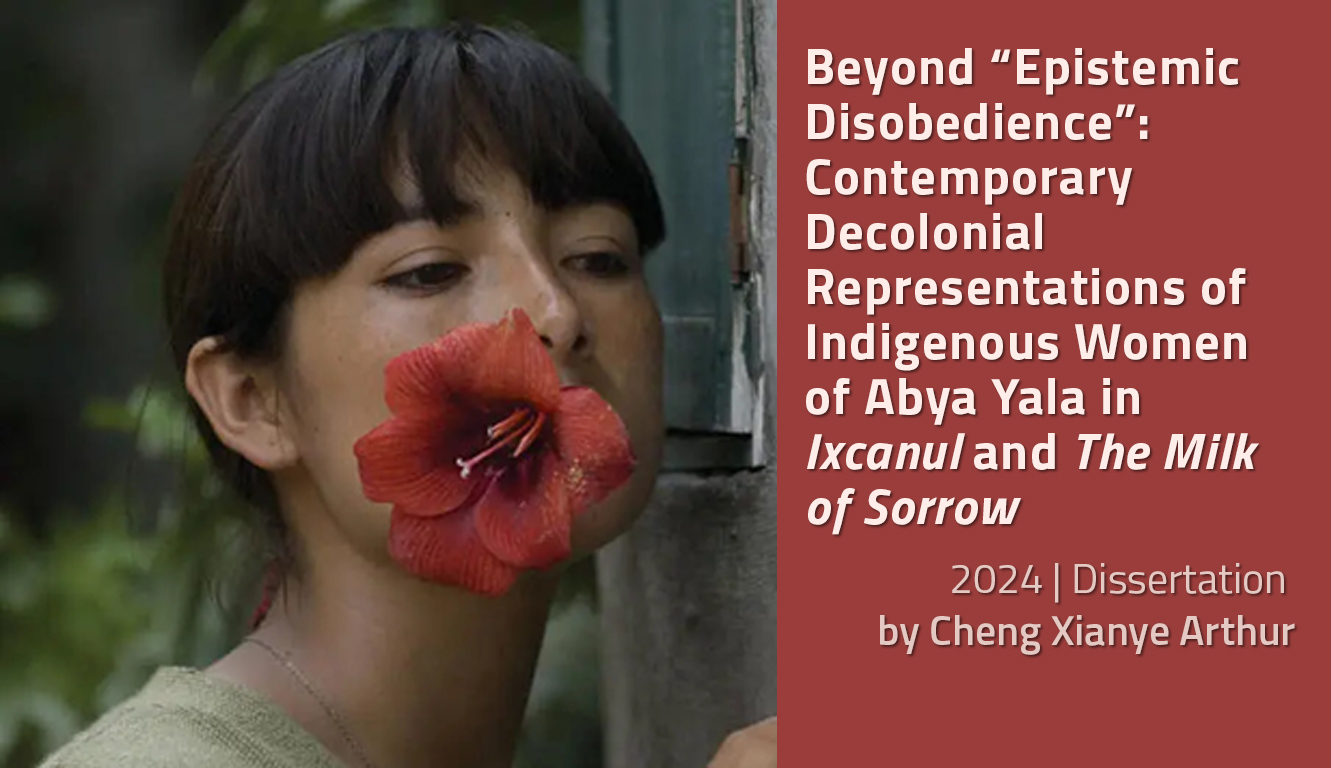Introduction
 This dissertation aims to explore the utter significance and the scope of application of the indigenous female body and corporality in contemporary Latin American decolonial discourses. The theoretical discussion centers on the subversive and transgressive nature of the female bodies as a supplementary criterion to Walter Mignolo’s decolonial rhetoric, “Epistemic Disobedience,” by recognizing indigenous women’s potentiality in practicing decoloniality through non-conforming bodily acts and serving as culturally inscribed substrate of rebellious consciousness. The fundamental objective is to investigate the ways in which female bodies are represented and culturally informed in contemporary Latin American cinematic productions. Through scrutinizing and examining the films Ixcanul (2015) and The Milk of Sorrow (2009), the project highlights the precariousness and plights faced by contemporary Latin American indigenous women from both national and individual ends. It also seeks to enlarge the parameters of decolonial feminism in cultural studies and reveal multiple pertinent aspects of indigenous women’s agency in realizing contemporary decolonial missions, including but not limited to subjectivity, beliefs, notion of body, psyche, and confrontation with alterity.
This dissertation aims to explore the utter significance and the scope of application of the indigenous female body and corporality in contemporary Latin American decolonial discourses. The theoretical discussion centers on the subversive and transgressive nature of the female bodies as a supplementary criterion to Walter Mignolo’s decolonial rhetoric, “Epistemic Disobedience,” by recognizing indigenous women’s potentiality in practicing decoloniality through non-conforming bodily acts and serving as culturally inscribed substrate of rebellious consciousness. The fundamental objective is to investigate the ways in which female bodies are represented and culturally informed in contemporary Latin American cinematic productions. Through scrutinizing and examining the films Ixcanul (2015) and The Milk of Sorrow (2009), the project highlights the precariousness and plights faced by contemporary Latin American indigenous women from both national and individual ends. It also seeks to enlarge the parameters of decolonial feminism in cultural studies and reveal multiple pertinent aspects of indigenous women’s agency in realizing contemporary decolonial missions, including but not limited to subjectivity, beliefs, notion of body, psyche, and confrontation with alterity.
If interested, you may read Arthur’s Dissertation here.
Experience at MALCS
My entire dissertation-writing experience at MALCS was truly a gem! Initially, when I proposed my tentative topics to the dissertation panel, I felt insecure since my central theme is not Asia-related. But I was so blessed that MALCS has manifested great inclusiveness and flexibility by giving me full consent to carry out this project. Later, the assigned supervisor has provided ample constructive suggestions and insights during different stages of my writing, particularly with respect to the theoretical orientation of my piece. Thanks to my supervisor, previous courses that I have enrolled at MALCS, and rich yet accessible academic resources from HKU library, I was able to progressively make improvements regarding my project. The feedback from two examiners is also surprisingly illuminating, offering me a satisfactory termination of my master’s studies.

